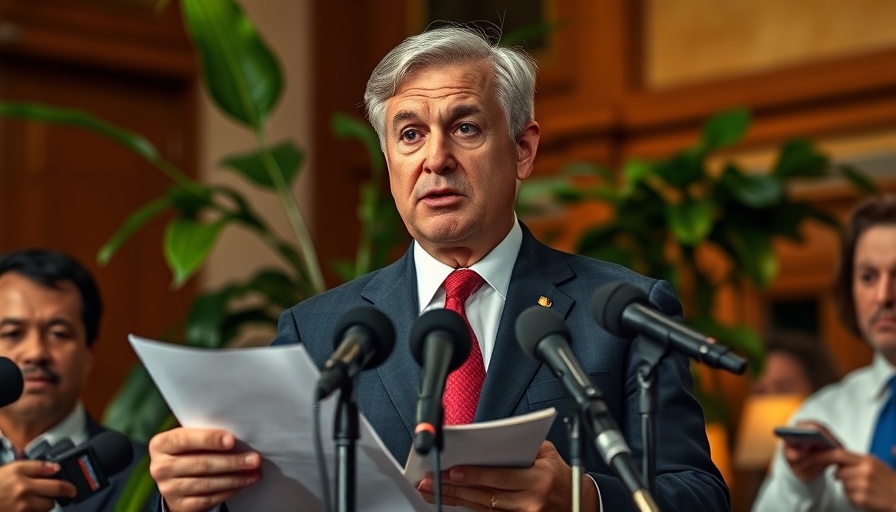
Japan’s Economic Response: A Strategic Package Unveiled
In light of the significant economic disruptions caused by recent U.S. tariffs, Japan's Prime Minister Shigeru Ishiba announced a comprehensive emergency economic package designed to alleviate the burdens faced by both industries and households. This decisive measure reflects the government's commitment to support key sectors that are critical to its economy, particularly automotive and steel industries, which are experiencing intense pressure from elevated tariffs.
Key Components of the Economic Package
The newly crafted package includes substantial financial provisions aimed at boosting corporate financing and supporting struggling households. A particular focus is on reducing the impact of rising fuel prices, as the package outlines subsidies to bring down gasoline prices by 10 yen per liter and provide partial compensation for electricity bills for three months starting in July.
As Ishiba explained, the initiative underscores the government's role in mitigating economic instability and ensuring that businesses maintain their operations despite heightened economic pressures. “I have instructed cabinet members to make the utmost efforts to aid firms and households that have been worried about tariff impacts,” said Ishiba, marking a proactive approach to economic management.
Historical Context of Tariffs and Economic Packages
This move is not unprecedented. Historical patterns show that nations often respond to tariff barriers with economic stimulus packages. The U.S.-China trade war serves as a recent example where both countries attempted to buffer their economies from the repercussions of tariffs. Japan’s initiative can be seen as a strategic effort to reinforce its economy amidst global trade tensions, drawing lessons from past experiences where swift action was necessary to avoid larger downturns.
Implications for Industries: A Focus on Automotive and Steel
Industries such as automotive and steel are particularly vulnerable to shifts in tariff policies. These sectors have long been the backbone of Japan's economy, supporting millions of jobs and driving exports. With U.S. tariffs affecting these industries directly, the government’s financial support serves as crucial lifelines. This package is expected to help companies maintain production levels and protect jobs, while also safeguarding consumers from passing on these costs through higher prices.
Future Predictions: Economic Resilience or Continued Struggle?
Looking forward, analysts are divided on the potential effectiveness of these economic measures. While some expect an immediate positive impact, boosting consumer confidence and spending, others caution that the relief may be temporary unless underlying trade issues are addressed. As global supply chains continue to face turbulence, the long-term sustainability of Japan's economic recovery will hinge on broader diplomatic negotiations regarding trade practices and tariffs.
Conclusion: The Call for Broader Economic Strategies
Japan's emergency package represents a crucial step towards supporting its economy in turbulent times. However, it underscores the importance of developing long-term strategic economic policies that address not just immediate concerns but also foster sustainable growth. As nations navigate the complexities of global trade, proactive measures will be essential. Stakeholders—from government policymakers to investors—should remain vigilant and engaged in shaping the future economic landscape, balancing immediate relief with strategic foresight.
 Add Row
Add Row  Add
Add 



Write A Comment